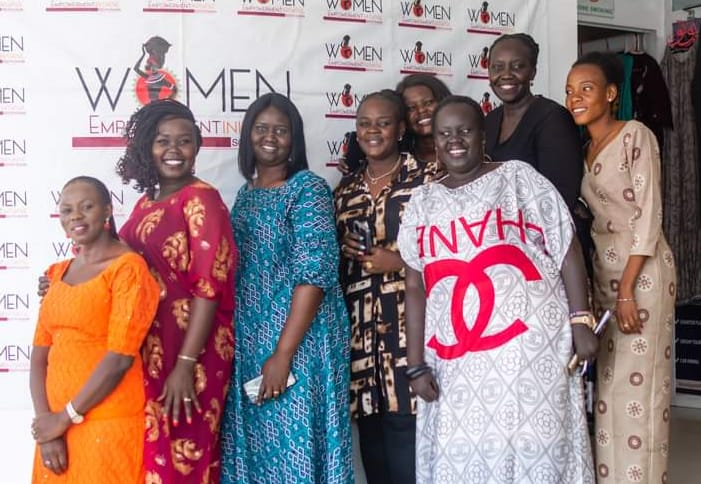South Sudan's English Daily Newspaper
"We Dare where others fear"

By Okech Francis
Many South Sudanese women are taking up the challenge posed by dire situations to elevate themselves out of poverty, engaging in Small and Medium Enterprises to enhance their entrepreneurial developments.
Several have learned the trick of collective responsibility to shoulder each other’s challenges. Babra Akita, owns a boutique in Juba and has been at the center, working with fellow women to shore up one another’s incomes. Her first plan was getting women to access the markets with their merchandise. “I discussed it with my friends on how we could help these hard-working and enterprising women who lack access to markets,” Akita, who is in her early 40s said in an interview.
She herself has had challenges in her business, including getting space to sell her goods and battling with dubious collections by unscrupulous people in Juba. Most women who are into the trade business, selling under umbrellas by the roadside or using stalls under the hot sun in marketplaces face groups of people who demand exorbitant money from them daily, money which they don’t understand. “We persevered with the daily collection. They will ambush us from every corner, with no escape route,” Eva Ayen, a 28-year-old who sells fruit juice for a living said of her ordeal with the people.
For the women, it has always been a tough situation, especially as the grapple with recovery from a war that has been devastating on the livelihoods of people. It began in 2013 and left thousands of people dead, displaced four million others and ruined South Sudan’s nascent economy. A peace agreement is being implemented in the country and is expected to yield democratic elections late this year, an exercise seen as laying the foundations for good governance.
Like Akita and Ayen, women are struggling to wriggle out of poverty and working in groups has been one of their security. It’s worthwhile mentioning that available data from the World Bank says South Sudanese women in small businesses constitute 60 percent of the country’s workforce. They toil daily to subsist for their families. Some are even sole breadwinners.

Entrepreneurship is a catalyst for women’s economic empowerment, which in turn is an important ingredient in building sustainable and inclusive economies and societies. In a country like China, there is a surge in women’s entrepreneurship with most women-owned businesses tending to be small and medium-sized enterprises (SMEs.)
According to the ‘Journal of Rural Studies’ vol. 105 published on ‘Science Direct’ this month, since 2013, more than 500,000 women in China’s Guizhou have been working at home producing handicrafts, creating an output income of approximately 6 billion RMB ($849 million) industry noting that such “fingertip economy” is widespread, with an increasing number of participating women entrepreneurs in this local rural revitalization program.
It noted that women’s entrepreneurship is viewed as contributing to the transformation of institutions and social ideologies and as well that rural entrepreneurship is regarded as a form of resource integration, ability construction, job creation, life improvement, and social harnessing in rural areas.
Akita, who started her boutique business from scratch, is working with other women to ensure businesses of their folks are protected and markets available. Some of her work includes holding small trainings and trade fairs for the women to showcase their products. “The main idea was to train them on entrepreneurship. After that, unite them through the exhibition such that they can network and market each other’s products or business to friends and potential clients,” Akita said.
Exhibitions have been held in key places including at Regency Hotel’s main conference hall, a venue they had chosen anticipating patronage from its high-end clients. “We agree on a co-pay system. We raise the capital to hire the hall and charge the women 10000 South Sudanese Pounds for two days of exhibition,” Akita said.
They also inform the women that instead of facing harassment, they could exhibit their wares at an exhibition every last weekend in a month and get patronage from high-paying customers. The exhibitions are getting much larger with hundreds of women showcasing different products, Akita said.
Meanwhile for Ayen, such exhibitions are a new lifeline for her livelihood. “I haven’t missed any of the exhibitions since my first one in March 2021,” Ayen said. “There are times I will go back home with over $100 in profit in the two days of the weekend. It’s not enough for all the needs of my family, but it keeps us going.”



